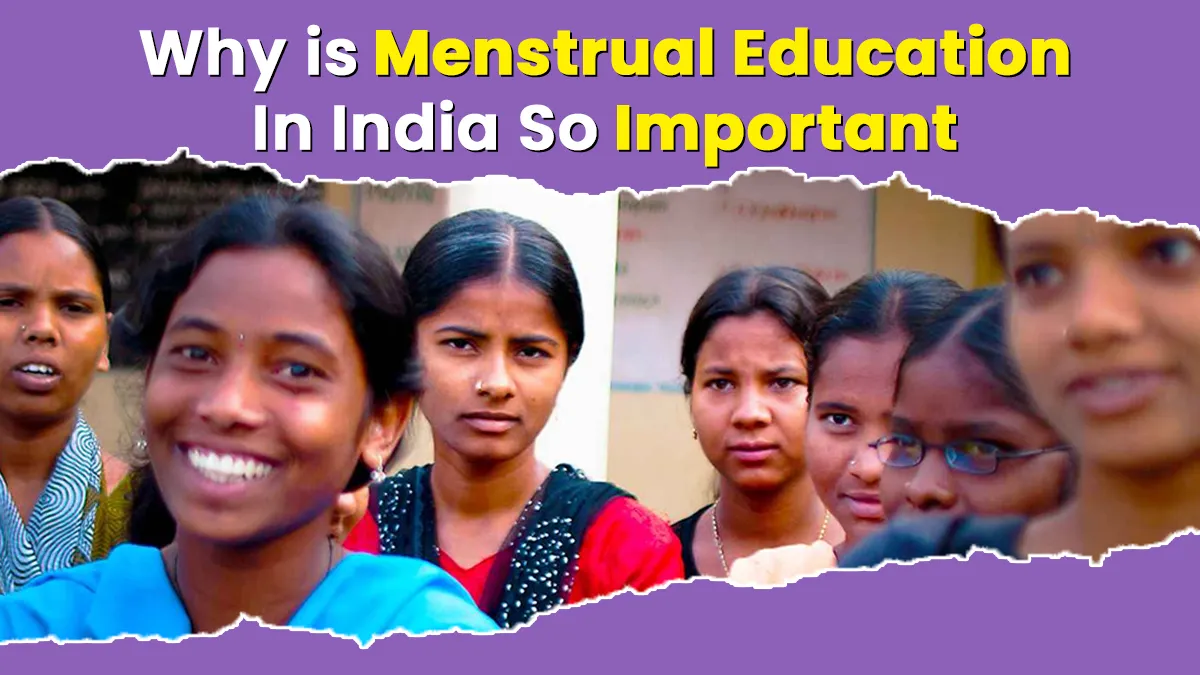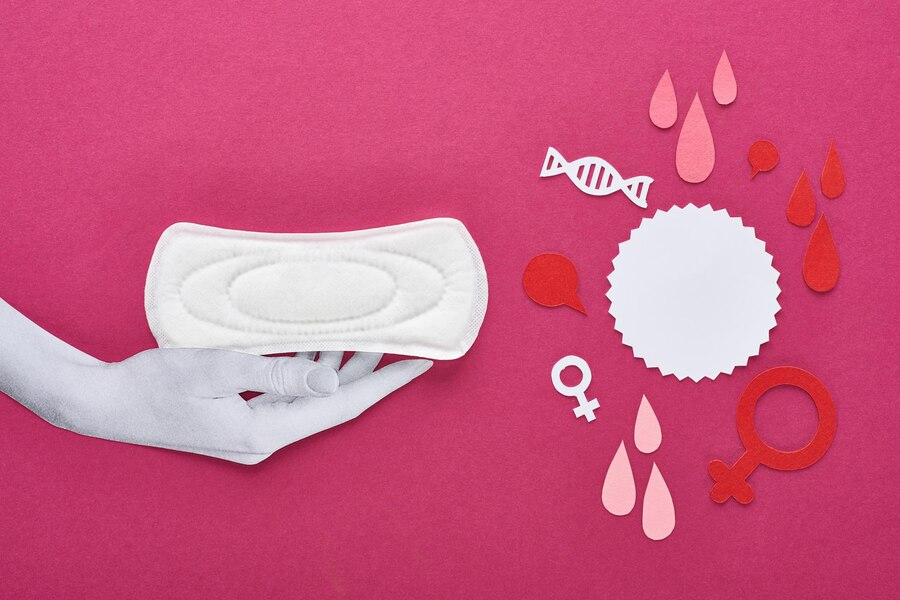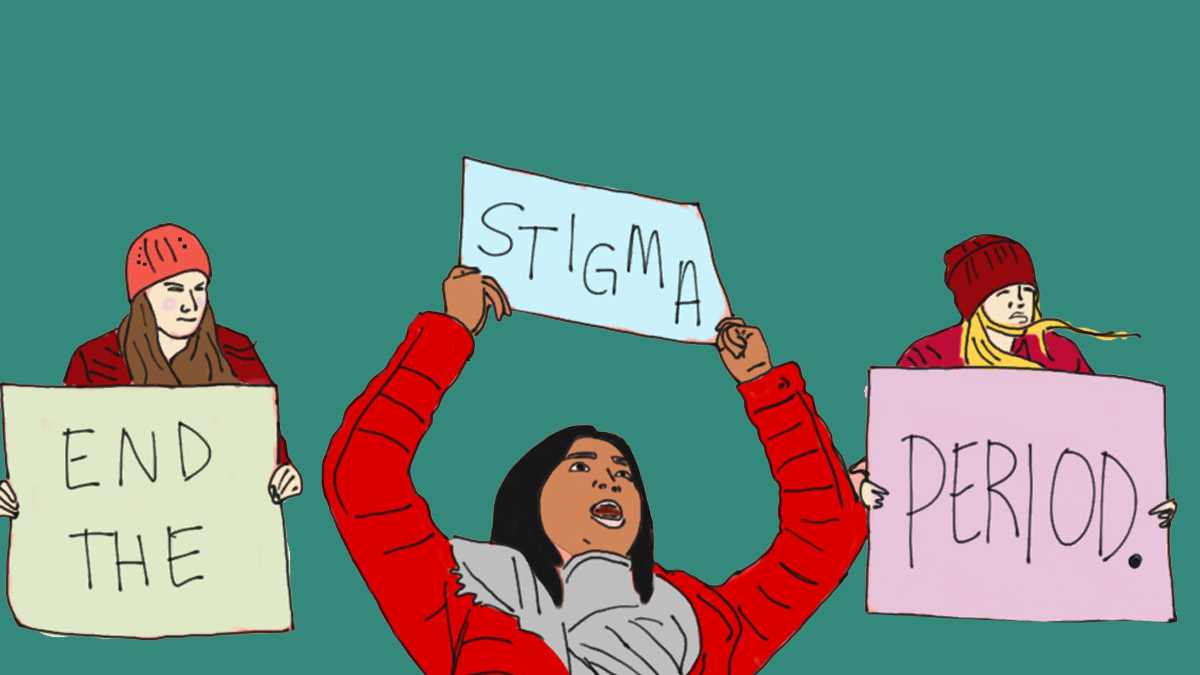
For generations, conversations around menstruation in India have been clouded by silence, shame, and myths. While awareness has increased, far too many young girls still experience their first period with little knowledge, support, or words to describe what's happening inside their body. To understand this gap more closely, the editorial team of Onlymyhealth spoke with five women who shared their first-period stories, but they're all linked by the same thread. Read ahead to find out why they wish that they had known better.
Table of Content:-
“I was bleeding and didn’t know what was happening” - Srishti, 31, Noida
“I was bullied because none of us knew better” - Sharanya, 28, Melbourne
“I cried the entire day thinking this happens every day” - Shruti, 29, Kolkata
“I wanted the truth, so I asked for it” - Sanskriti, 23, Delhi
Expert Talk: Why Menstrual Education in India Cannot Wait Any Longer
“I was bleeding and didn’t know what was happening” - Srishti, 31, Noida
For Srishti Srivastava, the memory is as sharp today, although it was almost two decades ago. She was 12, sitting at home on a regular winter afternoon when she suddenly felt wetness.
“There was no warning, no discussion either at school or at home. I spent hours bleeding without any sanitary products because I didn’t understand what was happening to me,” she recalls.
It wasn't until her mother came home that the confusion was cleared, and with it came anger and embarrassment. "I wish someone had prepared me. No girl should be scared of something so natural."
“I was bullied because none of us knew better” - Sharanya, 28, Melbourne
Sharanya Awasthi grew up in Melbourne, and her experience revealed that poor menstrual awareness isn't limited to India alone. She was 11 when she got her first period, in the middle of a school day.
"I panicked, but the worst part was the boys in my class who noticed. They teased me because even they didn't know what a period was," she says.
Sharanya shared that the incident had deeply shaken her self-confidence. "Everything could have been avoided if our school had taught menstruation properly to everyone, not just girls."
Also Read: "Why Do I Feel Sleepy During Periods?" Gynaecologist Explains

“We thought I was going to die” - Aneesh, 44, Delhi
Aneesh Rawat's story reflects a time when information was even scarcer. She was in Class 6, around 10 or 11 years old, when she saw her skirt stained red. She rushed to the washroom with her friend.
“Neither of us knew about periods. We thought I had some internal injury. We actually told the teacher I might be dying,” she says.
Fortunately, her teacher understood. “She checked, handed me a pad, and gently showed me how to use it. Then she sent me home.”
Aneesh confided with her grandmother at home, who explained to her everything about menstruation. “To this day, I’m grateful to my teacher. She handled it with more kindness and clarity than anyone else had until then.”
“I cried the entire day thinking this happens every day” - Shruti, 29, Kolkata
Shruti Das grew up with an older sister, yet she said that she was utterly unprepared. She was 13 when she saw blood on her pants at home.
"I had heard something about periods from friends, but now I realise everything we discussed was misinformation," she says.
The shock of discovering that menstruation was a monthly occurrence left her traumatised. "I genuinely thought it would happen daily. I cried for days. I wish someone had sat me down earlier and explained the basics."
“I wanted the truth, so I asked for it” - Sanskriti, 23, Delhi
Of the five women, only Sanskriti Sharma knew ahead of time what to expect, because she asked. She was 10 when one of her classmates got her period and the classroom erupted in hushed gossip.
"I came home and told my mother I wanted the real explanation. "Thankfully, she told me everything clearly but at school I really got worried," she says.
A year later, when she first got her period, she wasn’t shocked. “It was uncomfortable, yes, but I wasn’t scared. I was prepared. That made all the difference.”
The Thread That Connects Them All
Five women, five stories across cities, generations, and backgrounds. Yet each of their stories underlines the very same truth:
- Most girls in India do not get adequate information before their first period.
- Some face fear, some face shame, while some even face bullying. Only a few, feel prepared.
This is not just a personal issue, and it is systemic. To understand the deeper impact of this gap, we also spoke to our expert, Dr Rajni Mittal, MBBS and MD Obstetrics and Gynecology, Chief Medical Officer, Hindu Rao Hospital - Delhi, and here is what she shared with us.
Also Read: Light Sensitivity During Menstruation: Why It Happens

Expert Talk: Why Menstrual Education in India Cannot Wait Any Longer
Dr Rajni Mittal emphasises that menstrual education should begin prior to the onset of menstruation, not afterward.
"Most girls begin to menstruate anytime between ages 9 and 14. By the time the first period arrives, they should already know what is happening inside their bodies," she explains.
Why Lack of Period Awareness Is Harmful
According to Dr Mittal, inadequate menstrual knowledge may lead to:
- Living in fear and psychological trauma, as Shruti experienced
- Poor menstrual hygiene that can contribute to the risk of infections.
- Shame and secrecy, which trigger stigma
- Bullying and misinformation, as seen in Sharanya's case,
- Delayed medical assistance for conditions such as early puberty and abnormal bleeding
What Proper Menstrual Education Should Include
Dr Mittal stresses that a proper menstrual education should incorporate the following:
- What is menstruation and why it happens
- What are the normal things during periods and when to seek help
- Hygienic use of sanitary products
- Emotional and physical changes associated with the menstrual cycle
- The importance of including boys in the menstruation conversation, too
"Menstruation is a biological process, not something taboo. Every girl has the right to dignity, safety, and clarity regarding this important transition in life,” Dr Mittal concudes.
Bottomline
These stories remind us that as times change, young girls in India deserve better. Their first period shouldn't be a frightening moment, and it needs to come with knowledge, confidence, and support. Hence, begin with open conversations at home, in schools, and in society to make it a happy and comfortable space for young and menstruating women.
Also watch this video
FAQ
1. At what age should girls learn about menstruation?
The ideal age to begin period education is around the age of 8 or 9 years, much before the first period generally sets in.2. Why should boys be included in menstrual education?
Including boys reduces stigma, prevents bullying, and normalises menstruation as a natural biological process.3. How can parents initiate the conversation at home?
Use simple words and be honest. Make the atmosphere a safe one. Use visual charts, books, and examples from real life to explain.
Read Next
Cervical Ectopy vs Cervical Erosion: Expert Explains What This Common Diagnosis Really Means
How we keep this article up to date:
We work with experts and keep a close eye on the latest in health and wellness. Whenever there is a new research or helpful information, we update our articles with accurate and useful advice.
Current Version
Nov 26, 2025 12:31 IST
Published By : Tanya Srivastava